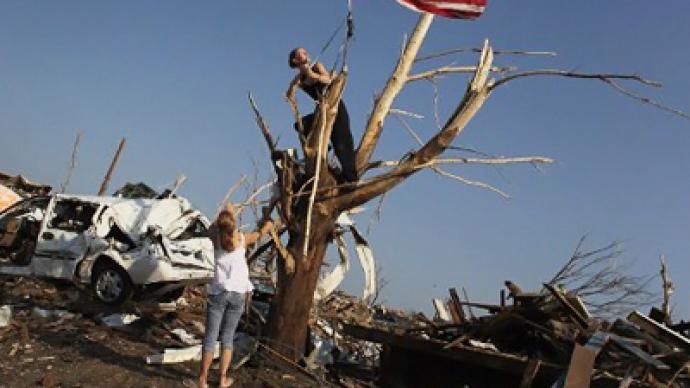Shortsighted construction to blame for US disasters?

Tornadoes are ripping down buildings and destroying homes across America. Nuclear power plants are melting down; others are sitting disasters waiting to happen.
Are Americans building without forethought and no attention to regions prone to harsh weather or disasters? Some argue a lack of attention to detail and the desire of companies and consumers to save a quick buck is leaving many Americans in harm’s way – most notably from an impending nuclear disaster similar to Japan. Harvey Wasserman, the editor of NukeFree.org explained that the nuclear industry has known for years of the risks and in history have been actively warned about building nuclear facilities in tsunami and earthquake prone zones. Many regulators and corporation merely assume the disasters will not happen to them and take the chance in hopes of making a profit. “The accidents that have happened have been predictable,” he said. “Three-mile Island was predicted. People understood that what happened at Chernobyl could happen.” Germany has responded to the spike in fear surrounding nuclear energy following the Fukushima disaster by banning nuclear power plants. The nation is set to dismantle all their nuclear facilities in the next few years. They are not heavily investing in geothermal energy, solar and other green energy forms. “Doing the right thing is actually going to be a huge economic benefit for Germany,” Wasserman noted. “Those are the technologies of the future.”“Jumping ahead to green power is probably the best economic decision Germany has made since World War II,” he argued. The future is in safe green technologies, not nuclear energy. He contended that going green benefits everyone economically, as well as providing safety, and of course it is better for the environment.Other sectors often find poor decisions lead to catastrophe. New Orleans for example would not have flooded following Katrina had the city not been over developed or proper funding had been poured into preventative systems. Wasserman explained that proper foresight and planning can prevent a number of global disasters. Paying attention to the reality of a situation and thinking environmentally will benefit the people economically and keep people safe. “What’s good for the environment, even if it costs money, is good for the economy,” he reiterated.












